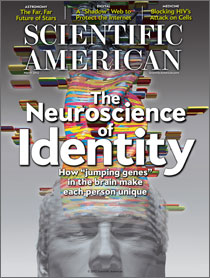Opting Out of Overoptimism
The willful distortion of reality to extremes
can be harmful

ARE YOU BETTER THAN AVERAGE AS A DRIVER? I know I am. I’ll bet 90 percent of you think you are, too, because this is the well-documented phenomenon known as the above-average effect, part of the psychology of optimism.
According to psychologist Daniel Kahneman, in his 2011 book Thinking, Fast and Slow, “people tend to be overly optimistic about their relative standing on any activity in which they do moderately well.” But optimism can slide dangerously into overoptimism. Research shows that chief financial officers, for example, “were grossly overconfident about their ability to forecast the market” when tested by Duke University professors who collected 11,600 CFO forecasts and matched them to market outcomes and found a correlation of less than zero! Such overconfidence can be costly. “The study of CFOs showed that those who were most confident and optimistic about the S&P index were also overconfident and optimistic about the prospects of their own firm, which went on to take more risk than others,” Kahneman notes.
Isn’t optimistic risk taking integral to building a successful business? Yes, to a point. “One of the benefits of an optimistic temperament is that it encourages persistence in the face of obstacles,” Kahneman explains. But “pervasive optimistic bias” can be detrimental: “Most of us view the world as more benign than it really is, our own attributes as more favorable than they truly are, and the goals we adopt as more achievable than they are likely to be.” For example, only 35 percent of small businesses survive in the U.S. When surveyed, however, 81 percent of entrepreneurs assessed their odds of success at 70 percent, and 33 percent of them went so far as to put their chances at 100 percent. So what? In a Canadian study Kahneman cites, 47 percent of inventors participating in the Inventor’s Assistance Program, in which they paid for objective evaluations of their invention on 37 criteria, “continued development efforts even after being told that their project was hopeless, and on average these persistent (or obstinate) individuals doubled their initial losses before giving up.” Failure may not be an option in the mind of an entrepreneur, but it is all too frequent in reality. High-risk-taking entrepreneurs override such loss aversion, a phenomenon most of us succumb to in which losses hurt twice as much as gains feel good that we developed in our evolutionary environment of scarcity and uncertainty. (continue reading…)

